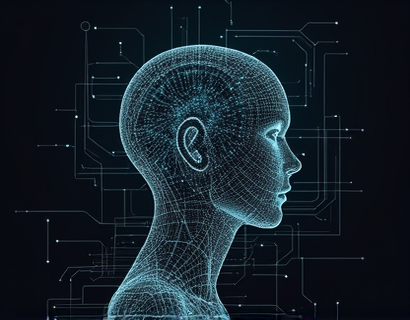Maximize Your Productivity with Intelligent AI Task Management
In today's fast-paced world, managing both personal and professional tasks efficiently is crucial for success. The integration of advanced AI technology into task management systems offers a revolutionary approach to streamlining workflows and enhancing productivity. Intelligent AI agents are designed to understand, predict, and automate tasks, allowing individuals and businesses to focus on high-priority activities that drive growth and achievement. This article delves into how these cutting-edge solutions can redefine task management, providing a smarter and more efficient way to handle daily responsibilities.
Understanding AI Task Management
AI task management leverages machine learning algorithms to analyze patterns, learn from user behavior, and automate repetitive tasks. These intelligent agents can prioritize tasks based on urgency and importance, ensuring that critical activities receive immediate attention. By integrating AI into task management, users can benefit from a system that not only organizes tasks but also anticipates needs and suggests optimal action plans.
The core functionality of AI task management systems includes task creation, prioritization, reminders, and automation. These systems can integrate with various calendars and productivity tools, creating a seamless workflow that adapts to the user's preferences and habits. The ability to customize and train these AI agents ensures that they become more effective over time, further enhancing productivity.
Benefits for Personal Productivity
For individuals, AI task management offers a personalized approach to managing daily activities. By inputting personal goals and preferences, the AI can create a tailored task list that aligns with long-term objectives. This ensures that time is allocated efficiently, reducing the likelihood of procrastination and increasing overall productivity.
One of the significant advantages is the reduction of mental load. Instead of constantly remembering tasks and deadlines, AI agents handle this information, freeing up mental space for more complex and creative tasks. This shift allows individuals to focus on high-value activities that require human intuition and decision-making, leading to better outcomes in both personal and professional spheres.
Moreover, AI task management can help in developing better time management skills. By analyzing how time is spent, these systems can identify time-wasting activities and suggest improvements. This data-driven approach enables users to make informed decisions about their schedules, leading to a more balanced and productive lifestyle.
Enhancing Professional Productivity
In a business environment, the impact of AI task management is even more profound. Teams can collaborate more effectively as AI agents facilitate task assignment, tracking, and status updates. This streamlined communication reduces misunderstandings and ensures that everyone is aligned with project goals.
AI can also predict potential bottlenecks by analyzing project timelines and resource allocation. By identifying these issues early, businesses can take proactive measures to mitigate risks and keep projects on track. This predictive capability is invaluable in fast-paced industries where delays can have significant financial implications.
Additionally, AI task management systems can integrate with other business tools such as CRM, project management software, and communication platforms. This integration creates a cohesive ecosystem where data flows seamlessly, enhancing decision-making and operational efficiency. The automation of routine tasks, such as data entry and report generation, allows employees to focus on strategic initiatives that drive business growth.
Implementing AI Task Management
To harness the benefits of AI task management, organizations and individuals need to adopt a strategic approach. The first step is to select a reliable AI task management solution that aligns with specific needs and workflows. It's essential to consider factors such as ease of use, customization options, and integration capabilities with existing tools.
Once the solution is in place, the next step is to train the AI agents. This involves inputting initial data, setting preferences, and defining rules for task prioritization. Over time, the AI will learn from user interactions, becoming more accurate and efficient in managing tasks.
Regular monitoring and adjustment of the system are crucial to maintain its effectiveness. Users should review task outcomes, provide feedback, and make necessary adjustments to ensure the AI continues to meet their evolving needs. This ongoing process ensures that the system remains a valuable asset in managing both personal and professional tasks.
Case Studies and Success Stories
Several organizations have successfully implemented AI task management systems, achieving significant improvements in productivity and efficiency. For instance, a marketing agency saw a 30% increase in project completion rates after integrating an AI task manager. The AI handled routine tasks such as scheduling meetings and sending reminders, allowing the team to focus on creative strategy development.
In the healthcare sector, a hospital utilized AI task management to optimize patient care workflows. The AI system prioritized tasks based on patient urgency, ensuring that critical cases were addressed promptly. This led to a reduction in patient wait times and an overall improvement in service quality.
These success stories highlight the potential of AI task management to transform various industries. By automating mundane tasks and providing intelligent insights, AI agents enable professionals to achieve more with less effort, leading to greater satisfaction and success.
Future Trends in AI Task Management
The future of AI task management is promising, with ongoing advancements expected to further enhance its capabilities. One area of development is the integration of natural language processing (NLP) to enable more intuitive user interactions. This will allow users to manage tasks using voice commands or natural language inputs, making the system even more accessible and user-friendly.
Another trend is the incorporation of emotional intelligence in AI agents. By understanding user emotions and stress levels, AI can adapt its suggestions and reminders to provide more supportive and less intrusive assistance. This empathetic approach can lead to a more positive user experience and higher adoption rates.
Additionally, the rise of edge computing will enable AI task management to operate more efficiently, with faster processing and reduced latency. This is particularly beneficial for real-time task management and collaboration in remote work environments.
Conclusion
Intelligent AI task management represents a significant leap forward in productivity tools, offering a comprehensive solution for both personal and professional task management. By automating routine tasks, providing intelligent insights, and adapting to user needs, AI agents empower individuals and organizations to achieve more with less effort. As technology continues to evolve, the potential for AI task management to revolutionize how we work and live is immense. Embracing these advanced solutions can lead to a more efficient, balanced, and successful life.











































